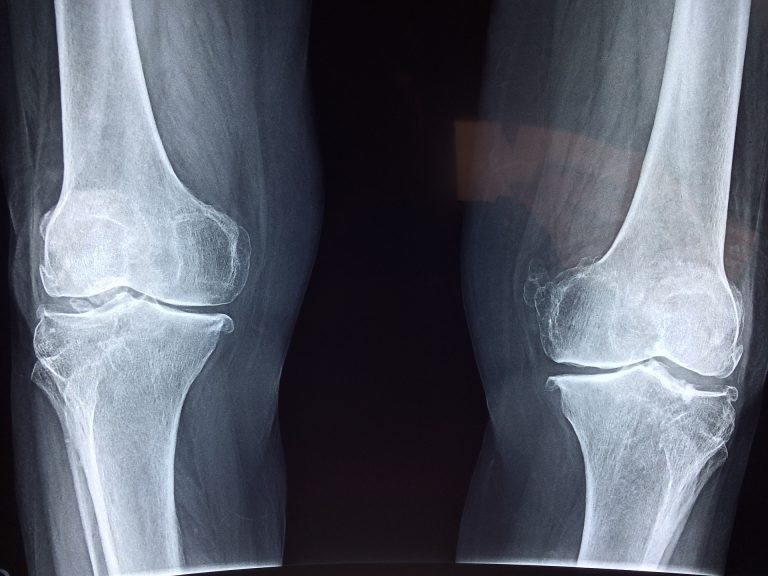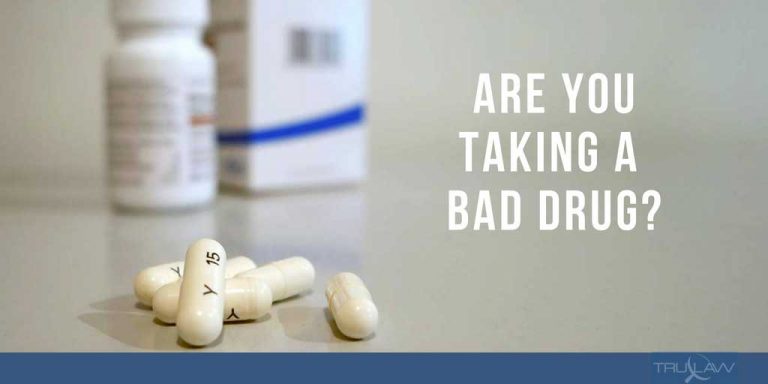Truvada Lawsuit
- Last Updated: October 17th, 2024

Attorney Jessie Paluch, founder of TruLaw, has over 25 years of experience as a personal injury and mass tort attorney, and previously worked as an international tax attorney at Deloitte. Jessie collaborates with attorneys nationwide — enabling her to share reliable, up-to-date legal information with our readers.
Legally Reviewed
This article has been written and reviewed for legal accuracy and clarity by the team of writers and legal experts at TruLaw and is as accurate as possible. This content should not be taken as legal advice from an attorney. If you would like to learn more about our owner and experienced injury lawyer, Jessie Paluch, you can do so here.
Fact-Checked
TruLaw does everything possible to make sure the information in this article is up to date and accurate. If you need specific legal advice about your case, contact us by using the chat on the bottom of this page. This article should not be taken as advice from an attorney.
Truvada Lawsuits: The Facts
The Truvada lawsuit alleges that Gilead, the manufacturer of the HIV drug, Truvada, withheld information about Truvada’s side effects and concealed a safer form of the drug from the public in order to maximize profits.
A number of Truvada users claim that Gilead has a similar HIV medication with fewer side effects for years but delayed its release to keep Truvada profitable.

This maneuver has resulted in serious and even fatal ailments in users of Truvada, many of whom are already suffering from an HIV diagnosis.
As of April 2019, over 40 HIV and PrEP patients have filed lawsuits against the biotech giant after experiencing side effects such as:
- Chronic kidney disease
- Declining kidney function
- Acute kidney injury
- Acute renal failure
- Osteopenia
- Osteoporosis
- Osteomalacia
- Bone fractures
- Related orthopedic injuries
Table of Contents
What is Truvada?
Truvada is a medication used to treat human immunodeficiency virus (HIV).
HIV weakens the immune system by killing important cells, leading to viruses such as cancer and tuberculosis.
The virus may progress to acquired immunodeficiency syndrome (AIDS) without adequate treatment and often marks a significant decline in the patient’s prognosis.
Truvada is one of several drugs used to treat and help prevent HIV.
Truvada is made of two (2) different meds:
- Tenofovir disoproxil fumarate (TDF)
- Emtricitabine
Truvada blocks certain pathways favored by the virus which helps stop the disease from growing.
Truvada is most effective when taken daily and used in conjunction with other HIV medication, although the patient should administer the drug as instructed by their doctor.
Gilead Sciences was founded in 1987 and specializes in creating medicine for various infections as well as influenza, hepatitis B, and HIV.
Since the drug’s FDA approval in 2004, Gilead has earned $36 billion in sales.
A month’s supply of Truvada in the U.S. is priced from $1,600 to $2,000, this is double the price it was sold at originally.
The sky-rocketing price of Truvada has met a lot of controversy – more than one million Americans could benefit from its use, but many are prevented from using it because of the cost.
There is a generic version of Truvada expected to hit the market in September of 2020, which generally means a price decrease, but many believe that the lack of competition will allow the manufacturer to continue to inflate the price.
Truvada’s maker, Gilead Sciences, is currently facing Truvada lawsuits for failure to warn of known side effects of the drug and allegedly withholding a safer form of HIV medicine from the public.
PrEP: From Treatment to Prevention
Truvuda began as just a pill for sufferers of HIV.
But in 2012, the FDA approved Truvuda as a drug capable of actually preventing HIV.
It was marketed as “Truvada for PrEP” (pre-exposure prophylaxis).
Early tests found Truvada to be 75% effective in preventing the disease in high-risk subjects, and subsequent tests have found numbers above 90%.
Together with the use of condoms, Truvada is capable of almost completely negating one’s chances of picking up HIV.
What Does a Truvada Lawsuit Look Like?
Drugmakers are legally required to warn the public about serious side effects associated with their products.
But, many times the disclosure of this risk is missed, or even avoided, when Big Pharma prioritizes profit over patient safety.
Gilead has been the target of class action lawsuits.
Below are several of the causes of actions brought against the maker of Truvada:
- Strict Products Liability – Design Defect and Failure to Warn
- Negligent Products Liability – Design Defect and Failure to Warn
- Breach of Implied Warranty
- Breach of Express Warranty
This is not Gilead’s first time on the defense.
They produce several other medications whose side effects have been questioned by the public including Atripla, Complera, Stribild, and Vemlidy (TDF).
Gilead is the biggest seller of this class of drugs which means the case against them will require ample evidence from victims and insiders alike.
I’ve Suffered Injuries From Taking Truvada. Can An Attorney Help Me?
Unwanted side effects are scary.
Medication is supposed to improve your health, not damage it.
If you’ve been taking Truvada and believe you’ve suffered serious side effects that you weren’t warned about, you should speak with a personal injury lawyer today.
You may be entitled to a compensation for your injuries and you may be able to help plenty of others who share your struggle.

Experienced Attorney & Legal SaaS CEO
With over 25 years of legal experience, Jessie is an Illinois lawyer, a CPA, and a mother of three. She spent the first decade of her career working as an international tax attorney at Deloitte.
In 2009, Jessie co-founded her own law firm with her husband – which has scaled to over 30 employees since its conception.
In 2016, Jessie founded TruLaw, which allows her to collaborate with attorneys and legal experts across the United States on a daily basis. This hypervaluable network of experts is what enables her to share reliable legal information with her readers!
Here, at TruLaw, we’re committed to helping victims get the justice they deserve.
Alongside our partner law firms, we have successfully collected over $3 Billion in verdicts and settlements on behalf of injured individuals.
Would you like our help?
At TruLaw, we fiercely combat corporations that endanger individuals’ well-being. If you’ve suffered injuries and believe these well-funded entities should be held accountable, we’re here for you.
With TruLaw, you gain access to successful and seasoned lawyers who maximize your chances of success. Our lawyers invest in you—they do not receive a dime until your lawsuit reaches a successful resolution!
Do you believe you’re entitled to compensation?
Use our Instant Case Evaluator to find out in as little as 60 seconds!
AFFF Lawsuit claims are being filed against manufacturers of aqueous film-forming foam (AFFF), commonly used in firefighting.
Claims allege that companies such as 3M, DuPont, and Tyco Fire Products failed to adequately warn users about the potential dangers of AFFF exposure — including increased risks of various cancers and diseases.
Suboxone Tooth Decay Lawsuit claims are being filed against Indivior, the manufacturer of Suboxone, a medication used to treat opioid addiction.
Claims allege that Indivior failed to adequately warn users about the potential dangers of severe tooth decay and dental injuries associated with Suboxone’s sublingual film version.
Social Media Harm Lawsuits are being filed against social media companies for allegedly causing mental health issues in children and teens.
Claims allege that companies like Meta, Google, ByteDance, and Snap designed addictive platforms that led to anxiety, depression, and other mental health issues without adequately warning users or parents.
Transvaginal Mesh Lawsuits are being filed against manufacturers of transvaginal mesh products used to treat pelvic organ prolapse (POP) and stress urinary incontinence (SUI).
Claims allege that companies like Ethicon, C.R. Bard, and Boston Scientific failed to adequately warn about potential dangers — including erosion, pain, and infection.
Bair Hugger Warming Blanket Lawsuits involve claims against 3M — alleging their surgical warming blankets caused severe infections and complications (particularly in hip and knee replacement surgeries).
Plaintiffs claim 3M failed to warn about potential risks — despite knowing about increased risk of deep joint infections since 2011.
Baby Formula NEC Lawsuit claims are being filed against manufacturers of cow’s milk-based baby formula products.
Claims allege that companies like Abbott Laboratories (Similac) and Mead Johnson & Company (Enfamil) failed to warn about the increased risk of necrotizing enterocolitis (NEC) in premature infants.
Here, at TruLaw, we’re committed to helping victims get the justice they deserve.
Alongside our partner law firms, we have successfully collected over $3 Billion in verdicts and settlements on behalf of injured individuals.
Would you like our help?


